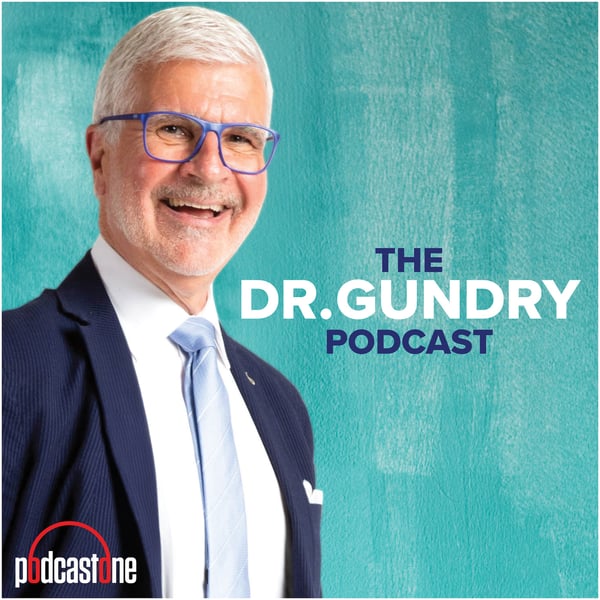The most common health issue no one’s talking about | EP 238
The Dr. Gundry Podcast
PodcastOne
4.6 • 1.7K Ratings
🗓️ 17 January 2023
⏱️ 50 minutes
🧾️ Download transcript
Summary
Transcript
Click on a timestamp to play from that location
| 0:00.0 | Welcome to the Dr. Gundry Podcast. The weekly podcast where Dr. G gives you the tools you need to boost your health and live your healthiest life. |
| 0:14.0 | Welcome to the Dr. Gundry Podcast. Obesity, heart disease, neurodegeneration, the list of modern diseases goes on and on. |
| 0:24.0 | And although they all seem unrelated, research shows that the cause of many of these serious illnesses may actually be driven by just one thing. |
| 0:33.0 | I'm talking about insulin resistance, and it's a lot more common than you may think. In fact, insulin resistance is the most common health disorder worldwide, yet very few people are familiar with it. |
| 0:46.0 | That's why today I brought on Dr. Ben Bickman, a renowned metabolic research scientist, professor at Brigham Young University, an author of the book Why We Get Sick, the hidden epidemic at the root of most chronic disease, and how to fight it. |
| 1:03.0 | After a quick break, Dr. Bickman and I will unpack insulin resistance and how it affects virtually every system in the body. |
| 1:11.0 | We'll also share why there's no better time than right now to take control of your health and give you the tools to do just that. |
| 1:20.0 | Whether you're interested in losing excess body fat, optimizing brain function, supporting your heart health, or simply feeling your best, |
| 1:30.0 | this is an episode you don't want to miss. We'll be right back. |
| 1:36.0 | It's actually been, I think, 20 years now, when the concept of insulin resistance was proposed, I know, Geralt Reden was a big proponent of this, about 20 years ago, |
| 1:54.0 | the concept of insulin resistance as a culprit in our heart or health issues. |
| 2:02.0 | So I thought we could do a deep dive into the subject and give kind of a refresher course to the audience, because I've been writing about this for a long time, and I tend to forget, like you say in your book, that most people haven't even heard of this, even though it's been around. |
| 2:20.0 | So when it comes to insulin, most people think about insulin as a medication for people with diabetes. |
| 2:28.0 | So let's start off by defining insulin and how it works in the body. Go ahead, take it away. |
| 2:34.0 | Oh yeah, yeah, sure. Thank you so much. Right. In fact, it's funny. You mentioned how most people aren't familiar with this. |
| 2:40.0 | That's why I didn't name the book, insulin resistance, why you should care, because I knew no one would. They would only read it if they thought they had diabetes. |
| 2:49.0 | Yes, so this is the most common problem, and it all starts with that humble little hormone insulin, and it is very little on the grand scale of hormones and how and what their sizes are. |
| 2:59.0 | But insulin has an effect at literally every single cell of the body. Now, I don't use the word literally too liberally, like the kids do these days, literally every cell will respond to insulin, whether from brain cells to bone cells or long cells to liver cells. |
| 3:16.0 | Insulin will come to a cell, knock on a door, if you will, that's specifically designed for insulin and then tell the cell to do something. |
| 3:26.0 | And it does a lot of things, of course, because it does things differently at different cells, but insulin's most famous effect. |
| 3:34.0 | And I'm not saying it's most important, but it's most famous effect is to control blood sugar or blood glucose levels. |
| 3:41.0 | And that's why people typically only think of insulin as being relevant to say diabetes, which is, you know, they look at diabetes as a disease of glucose. Now, I have my own issues with that definition, but nevertheless, that's its most famous effect, and that's how people see it. |
... |
Please login to see the full transcript.
Disclaimer: The podcast and artwork embedded on this page are from PodcastOne, and are the property of its owner and not affiliated with or endorsed by Tapesearch.
Generated transcripts are the property of PodcastOne and are distributed freely under the Fair Use doctrine. Transcripts generated by Tapesearch are not guaranteed to be accurate.
Copyright © Tapesearch 2025.

